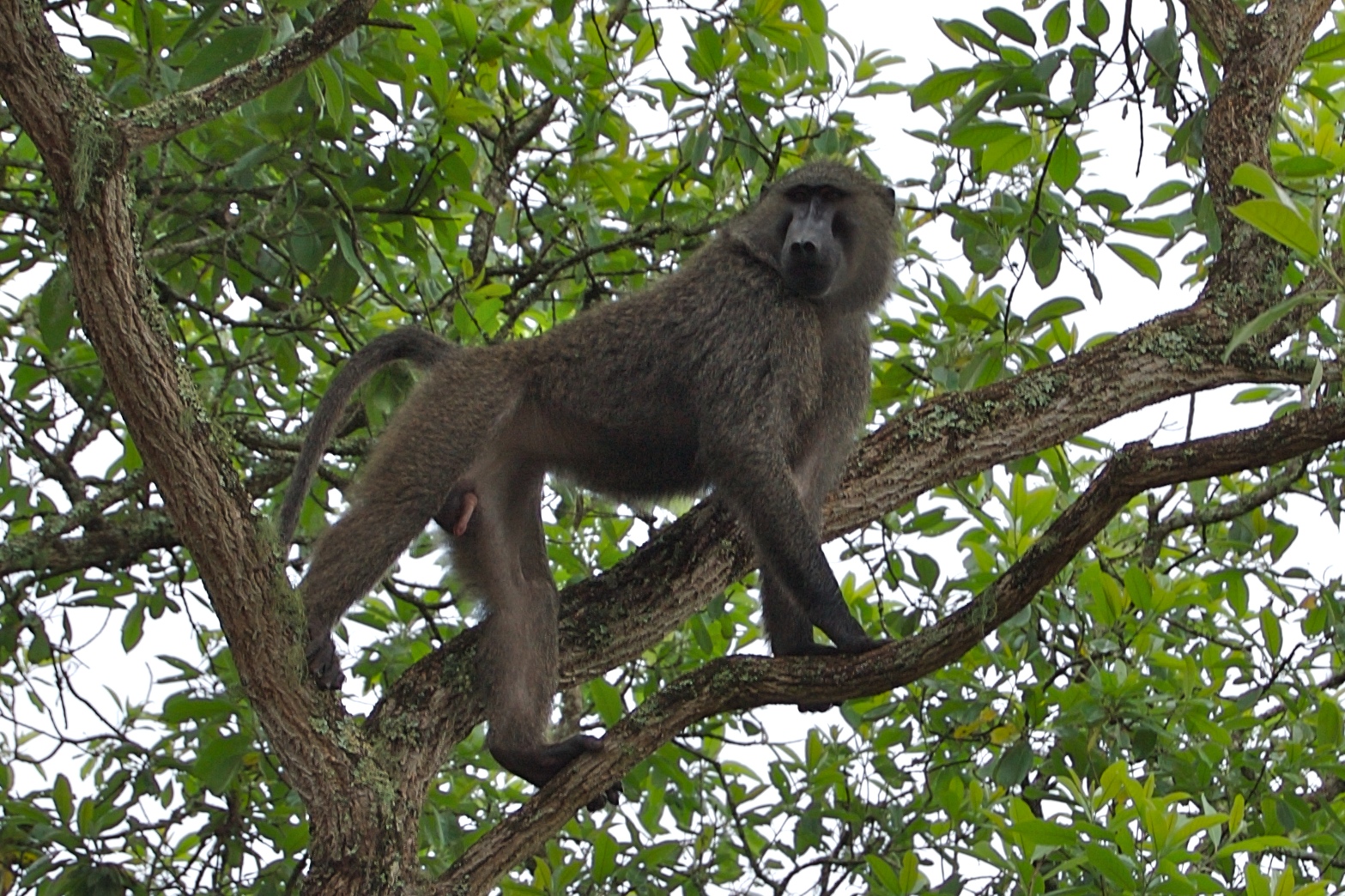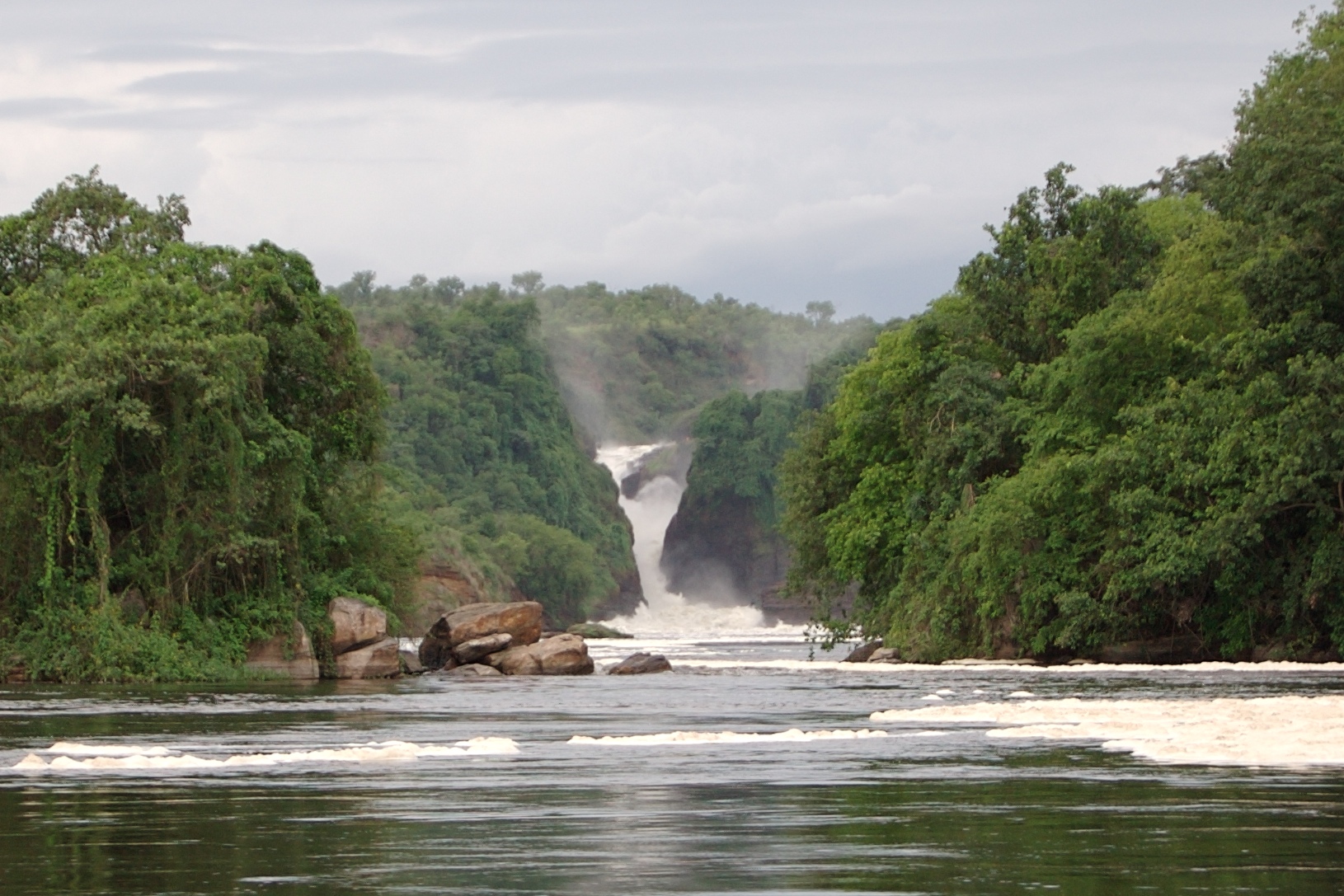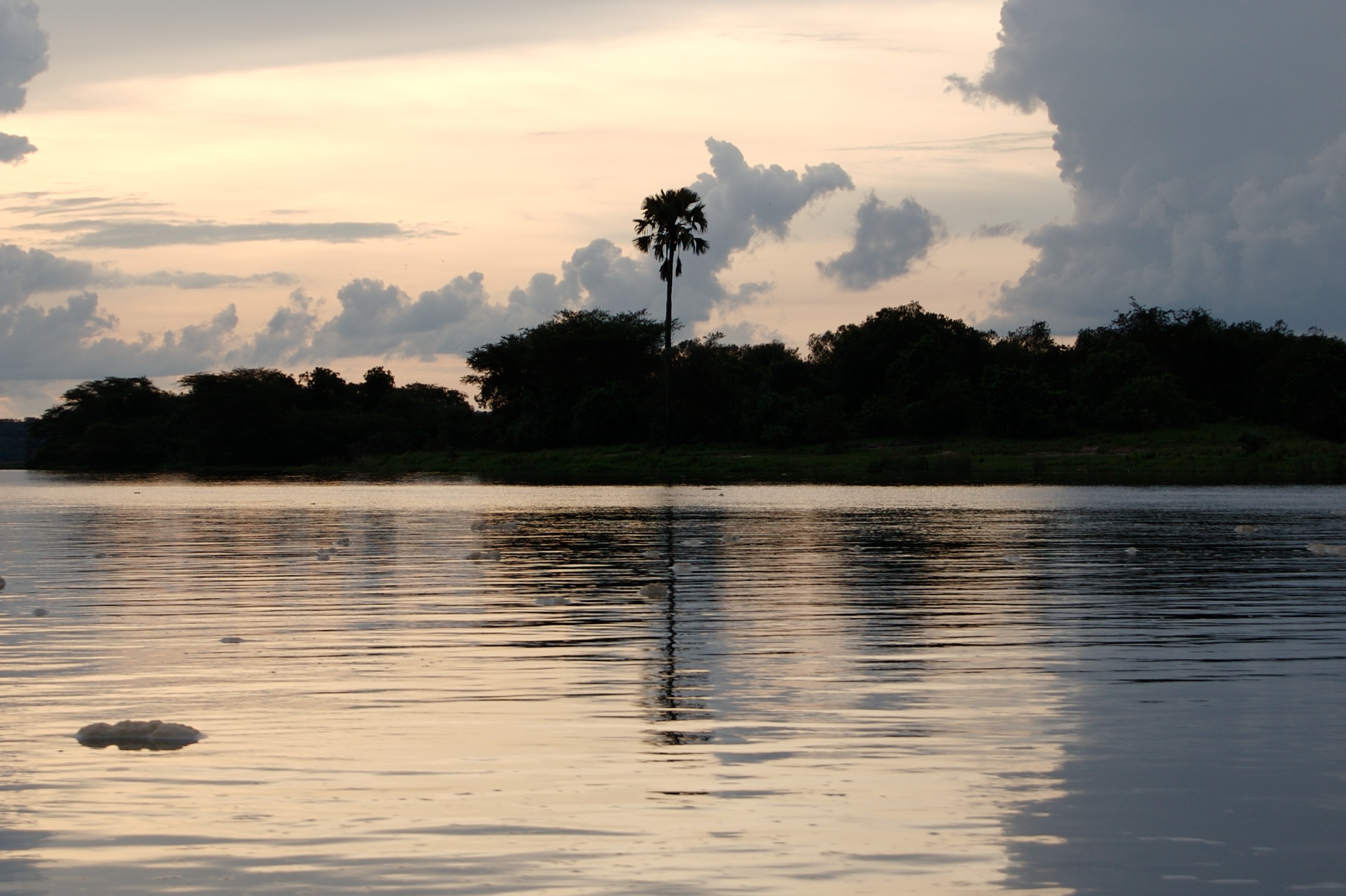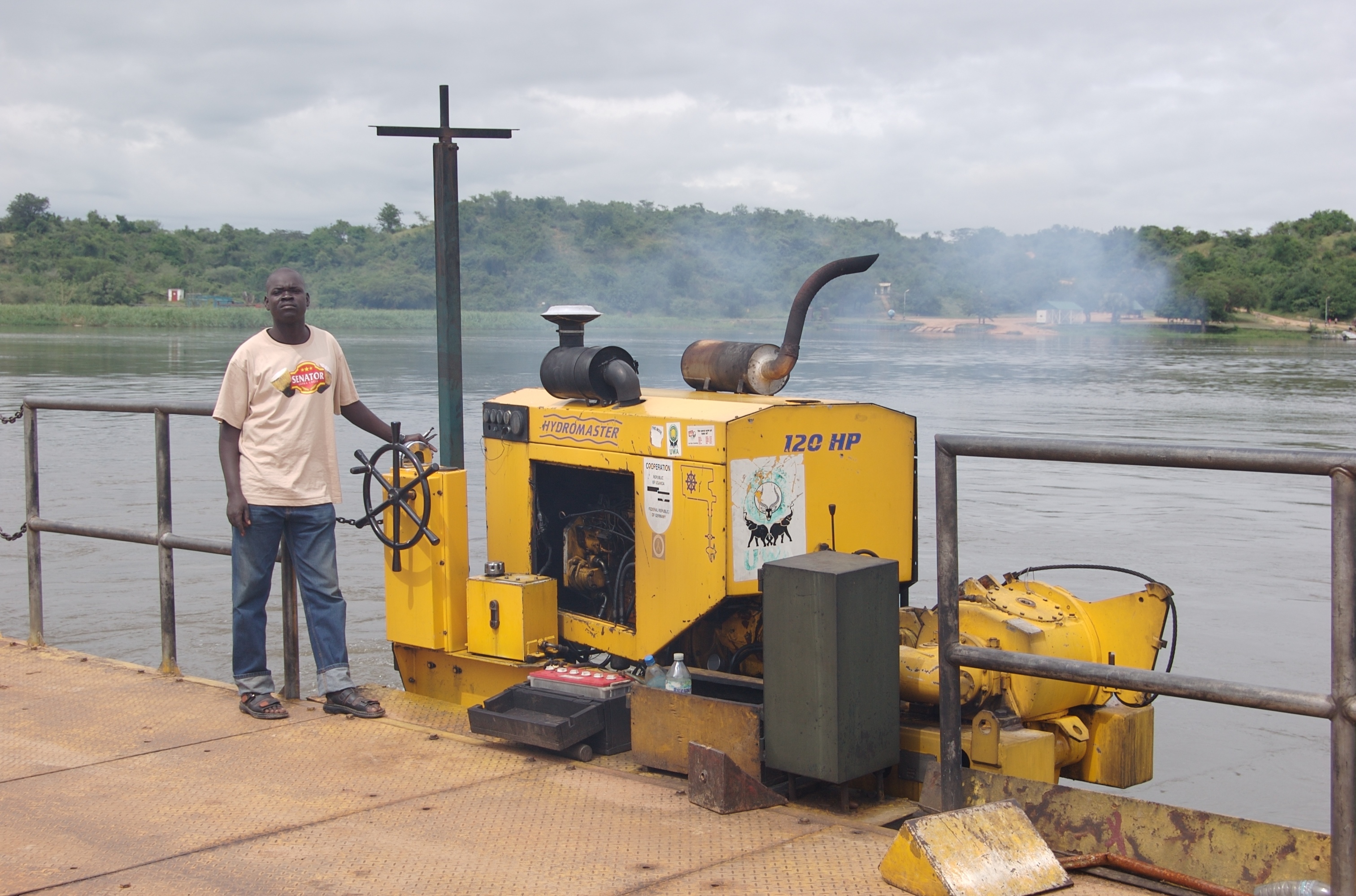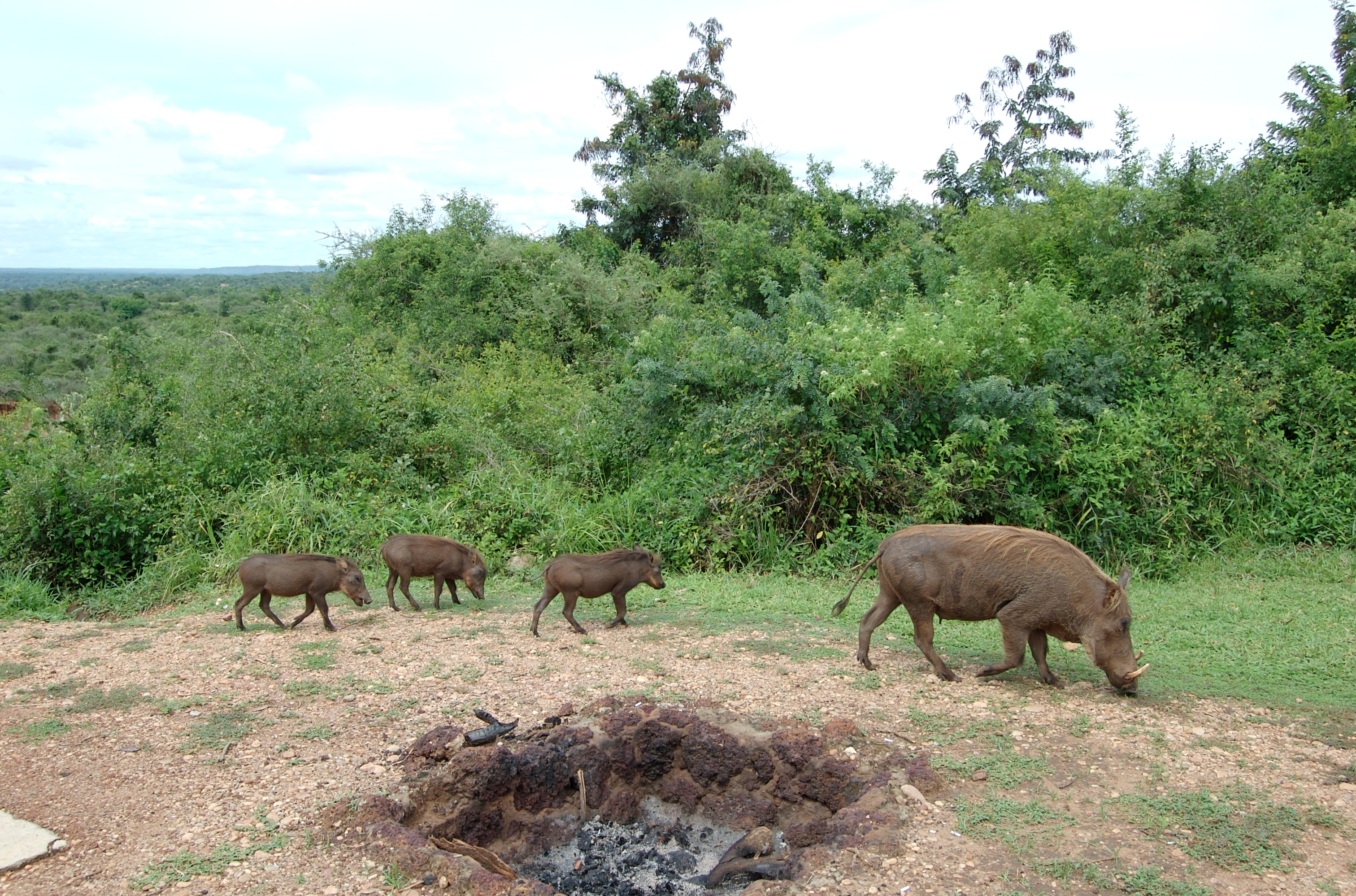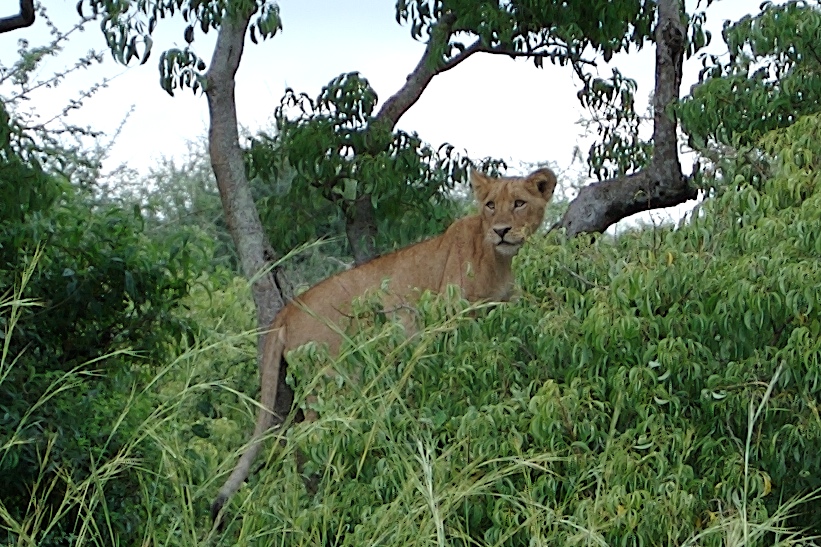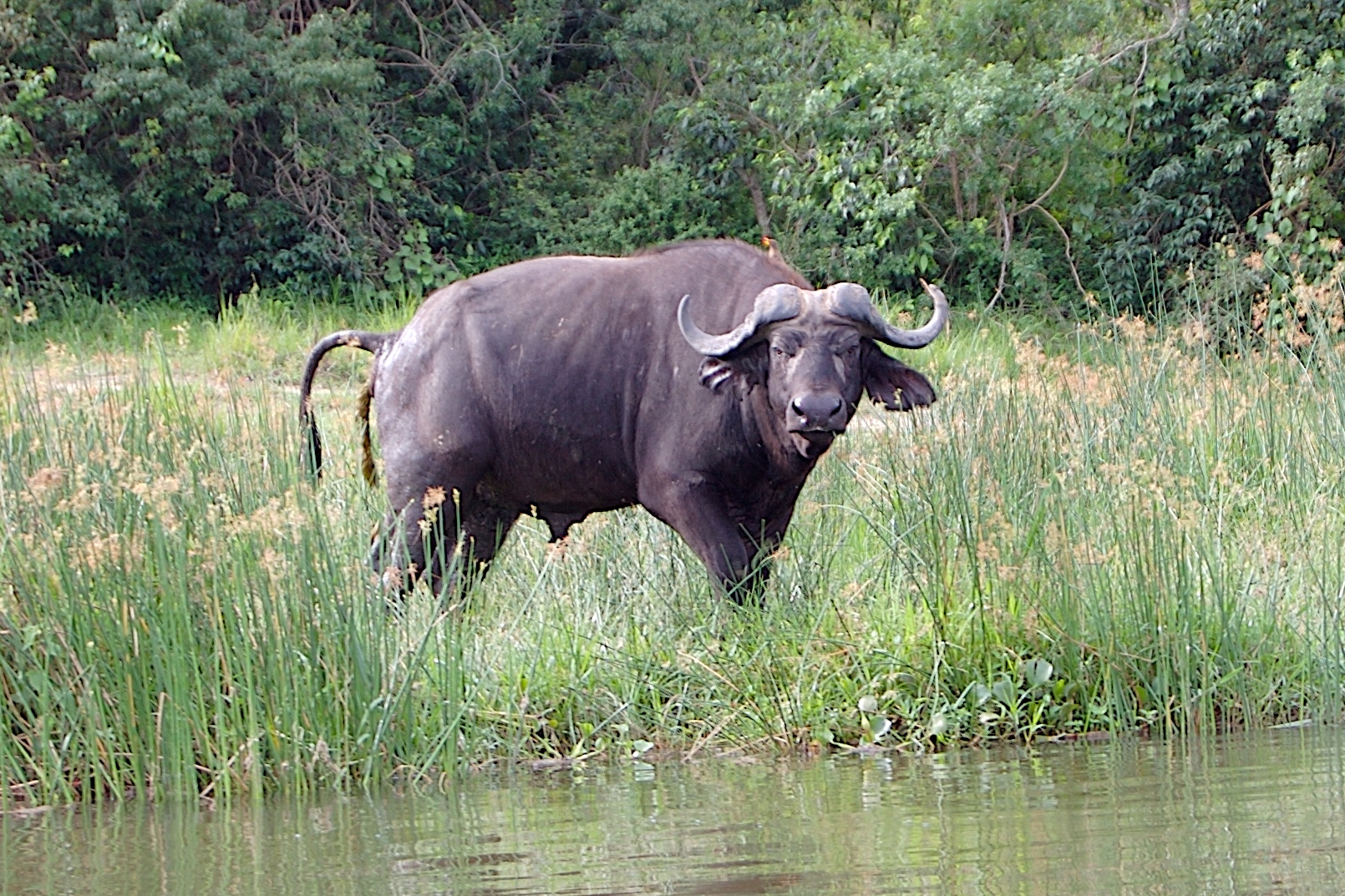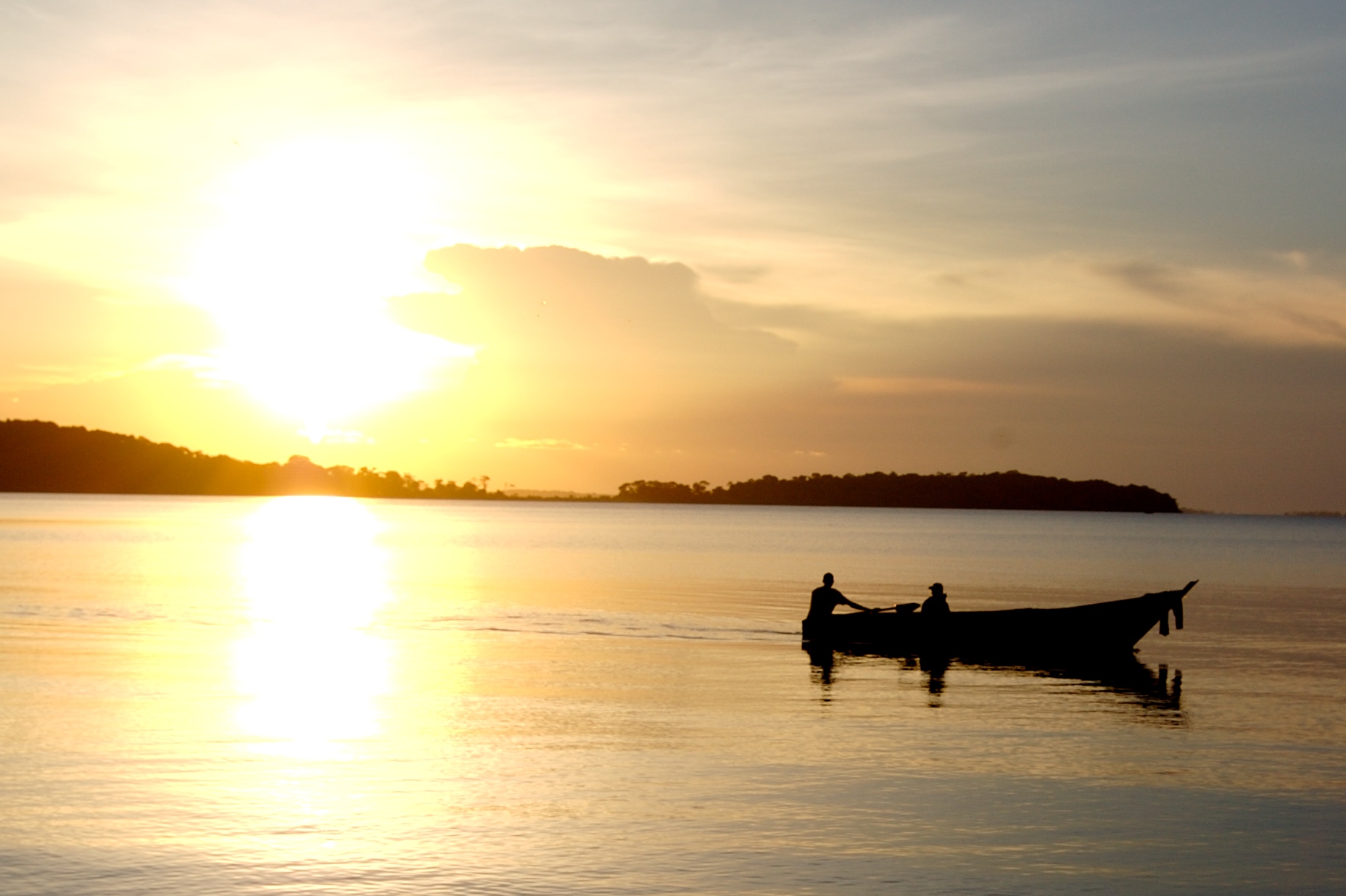
I set out on Friday for the secluded Ssese islands in Lake Victoria for a little R&R. I took a 3-hour ferry ride from Entebbe, sitting by the rails, with the spray tempering the equator sun.
By Saturday night, I was dancing to traditional German music with an elderly German lady. “Mama,” I only knew her as. I was the only guest at the Hornbill Camp, sleeping in a leaky tent on a private beach. The owners were a crazy middle-aged German couple who took beer with breakfast. Mama had come to visit her son and the owners threw a 30-person pig roast in her honour, attended by an assortment of locals from this tiny island, including a rather sharply dressed reverend. The food was delicious – cassava, plantains, bean salad, fried beans, beans-beans, assorted local vegetables, and of course the pig, whose squealing slaughter I had woken up to that morning. But there wasn’t enough pork, as Mama had broken into tears at the thought of killing the second pig. She had named him “Fritz.” The owner privately assured me Fritz would meet his maker after Mama left.
I had made the mistake of telling Mama I spoke a little German, having taken a couple years of long-forgotten classes in high school. Mama didn’t speak English, and I suppose was feeling a bit lonely, so throughout Saturday she sought me out on the beach for long conversations of which I didn’t understand a bloody word. The only things I really understood were when she approached me at the pig-roast and complained that there was too much African music on the stereo. Out came the German folk tunes. And Mama insisted I have the second dance with her (the reverend was first). A giggling crowd of Ugandans cheered us on. The next thing I understood was Mama telling me that the reverend had been a better dancer.
The night before I had sat on the beach to watch a quiet sunset, as the local fishermen (none of whom, I was told, can swim) paddled home in their rickety boats. And then the noisy Ugandan night came alive. Croaking bullfrogs, chirping grasshoppers, a cicada-like buzzing, angry ducks roused from their slumber, and mostly an assortment of very loud unidentifiable sounds, including a high-pitched, reverberating plinking that sounded a bit like a steel-drum band. Overhead was an unfamiliar sky, only recognizing an upside-down Big Dipper emptying into the horizon. Across the lake a lightning storm fizzled, dark clouds slowly rolling across the water towards me. A stray dog (there are no other kind in Uganda – as my friend put it, Africans find it very strange that we North Americans take “beasts” into our home and sometimes even sleep with them) came by to keep me company. Screw the fleas, I gave him a good rub down, glad to have a new friend. But this meager show of affection meant that he followed me around all weekend (all the way to when I boarded the ferry back), and even attacked my tent at 3am, bolting me awake with andrenaline pumping to see the outline of a jaw through the tent wall (I suppose he thought the tent had eaten me). When the inverted Big Dipper slowly disappeared behind the coming storm, I decided to turn in.
Other wildlife encounters included some mischievous monkeys eyeing my plantain chips and, especially, all manner of birds: the African Screaming Fish Eagle; brownish hawks circling above; the Grey East African Plantain Eater (apparently); a huge toucan-esque bird whose enormous wingflaps could be heard from far away and whose un-aerodynamic, grotesque beak made the air buzz as it passed (I thought I’d heard a small plane, at first), fleets of little yellow chirpers, and small fisher birds who hovered over the lake and then plunged in like missiles. A bird-watcher’s paradise.
Also – a 8-yearoldish local girl named Tina who spoke only Luganda. She found me on the beach. Tina squealed with delight when I showed her how to skip rocks. And then later she brought her friends to chase around the “mzungu” (‘white man’) and climbed all over me as I tried to read. At least I took the opportunity to get Tina to pose for a picture with
The Fate of Africa, an enormous tome I finally polished off this weekend:
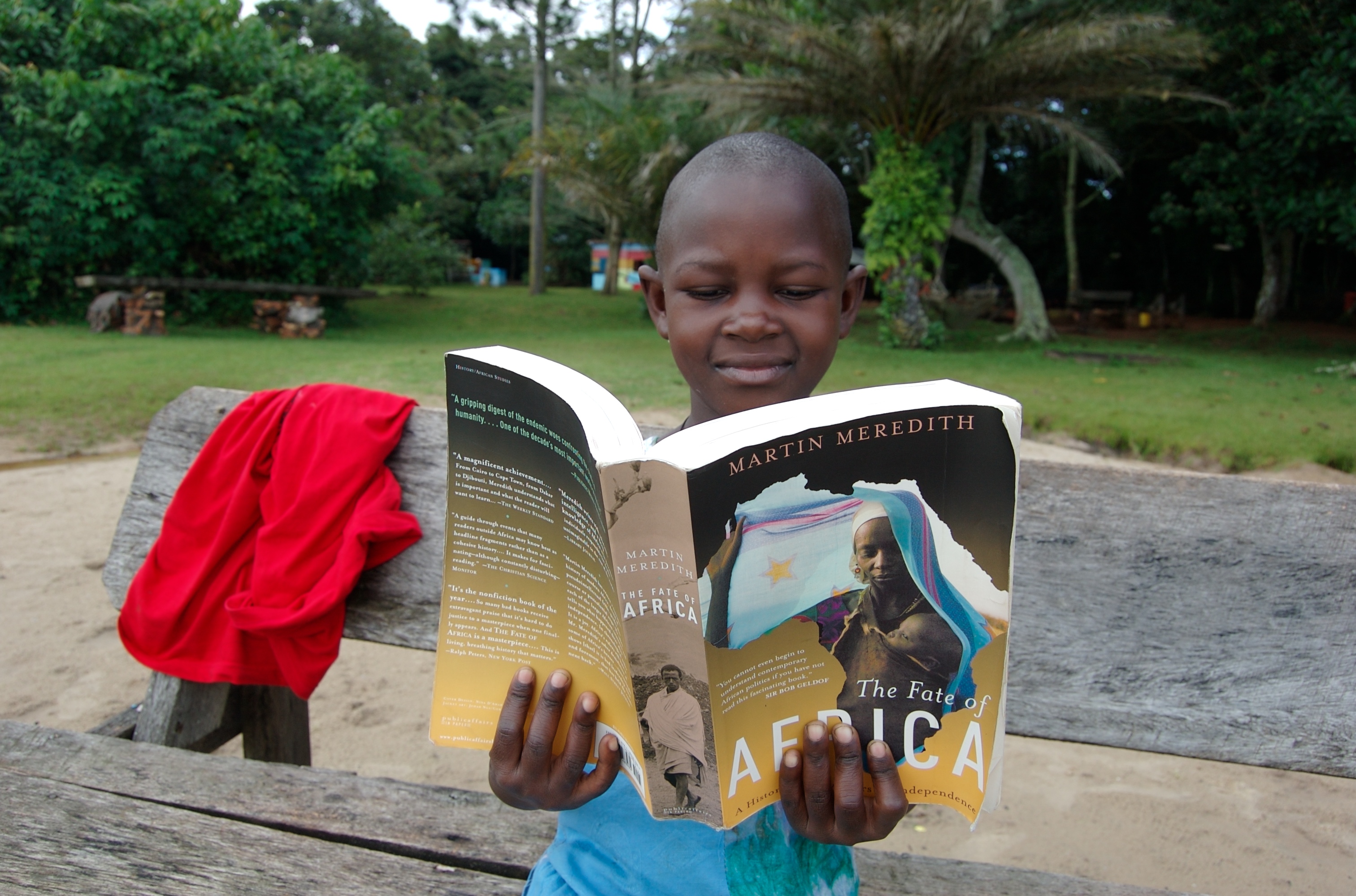

So while I didn’t get the absolute peace and quiet I was looking for, I will miss all my new friends. Auf wiedersehen, Mama!
